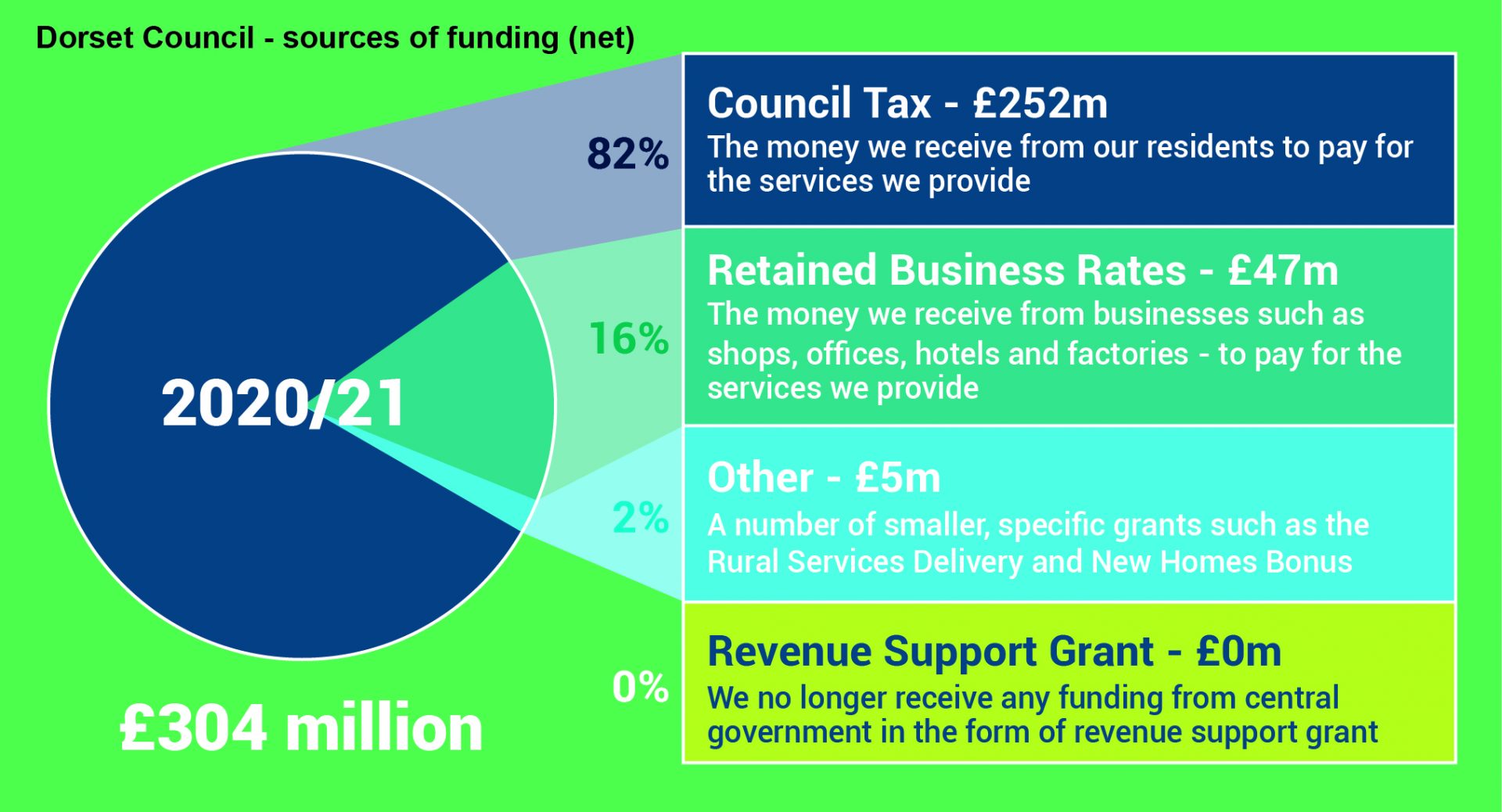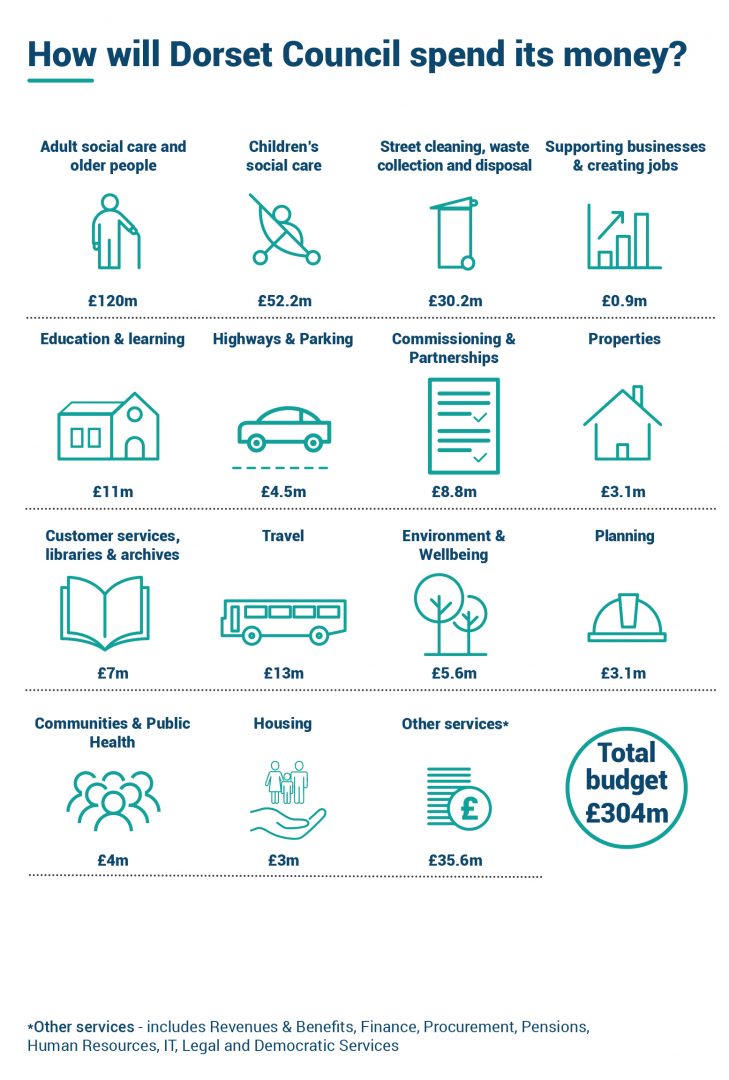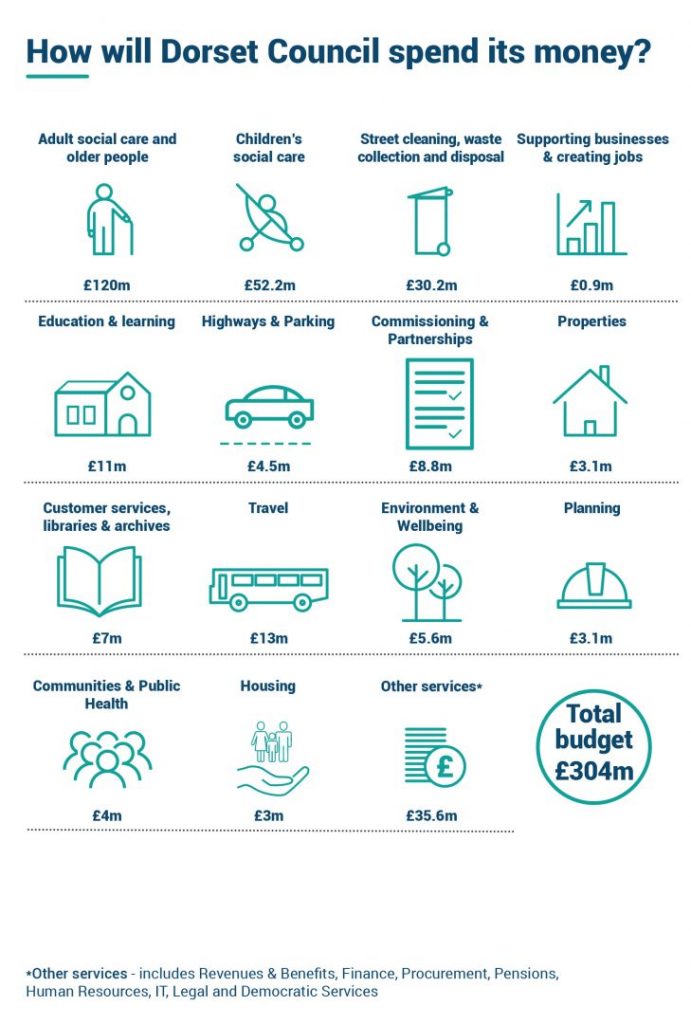Why is council tax proposed to increase?
Council tax contributions for Dorset Council are proposed to increase by just under 4% to help fund the rising cost of adult social care and children’s services, protecting the most vulnerable people in society. Councillors will vote on this proposal at the Full Council meeting on 18 February.
The proposed increase would also protect so called ‘discretionary’ services which are services a council can choose to provide but does not have to, such as country parks, weed clearing and school crossing patrols. Dorset councillors are keen to avoid any cuts to services for residents.
Why do social care services need more funding? Growing demand…
Social care provides essential care and assistance for children and young people at risk of harm, people with disabilities and older people who need extra support.
Dorset Council is legally required to provide social care, and these services are often expensive to provide. Well over half of Dorset Council’s total budget is spent on adults’ and children’s social care.
Demand for both adults’ and children’s care has been rising rapidly over recent years and this growth is forecast to continue into the foreseeable future. As our population ages, people are living longer with increasingly complex health conditions. We’re also caring for and supporting more children with special educational needs and disabilities (SEND).
Why can’t the council fund social care without increasing council tax?
Since 2010, central government grants to councils have been cut by nearly 60%. We no longer receive any Revenue Support Grant from central Government. Instead, the Government expects us to raise the funding we need through council tax. This is why 2% of the increase in council tax is what is known as a ‘social care precept’ – in other words, central Government is encouraging councils to increase council tax specifically in order to fund the growing cost of social care.
As you can see from this chart showing our sources of funding, Dorset Council is very dependent on council tax for income. Unlike some other councils, we get relatively low income from business rates and other sources.

Efficiencies, not cuts
Since the reorganisation of local government and the creation of Dorset Council on 1 April 2019, we have already achieved cost reductions of around £17m. Here are some examples:
- A reduction in the number of senior officer roles, and removal of duplication across support services like finance, HR and IT
- A reduction in the number of councillors from 204 to 82
- Cost reductions have been made on insurance, audit fees, banking and other activities where the council only has to pay for one organisation rather than six.
Next year, we plan to make further multi-million pound savings by:
- reducing the number of properties and land the council owns
- reducing travel and transport costs
- procuring services and products for the council more efficiently
- and changing the way we provide services so it’s a better experience for residents but delivered at lower cost.
All savings are reinvested into essential services for residents such as social care, highways and waste collection.
Our councillors are also lobbying Government for fairer funding for Dorset, particularly for special educational needs and disabilities and social care.
Protecting services
Our aim is to get the council working more efficiently, reducing the cost of overheads, and ensuring more of the council’s resources go into services for residents.

Cllr Spencer Flower, Leader of Dorset Council, said: “We would of course prefer not to raise council tax. However, we are left with no choice due to a steady decline over recent years in the overall funding from central government and the rising cost of adult social care and children’s services. The alternative would be to cut discretionary services such as country parks, weed clearing and school crossing patrols which neither I nor my colleagues wish to do.
“As an advocate for Dorset, over recent months I have lobbied Government for fairer funding – particularly for Special Educational Needs and Disabilities (SEND) and social care. As a result, we did secure a much needed additional £10m funding from Government in the autumn spending review. I will continue to make the case for Dorset with Government throughout the coming year.
“We have a statutory obligation to deliver many of our services. And looking after our most vulnerable residents is very important to us. And it is also important that we achieve a balanced budget through efficiency, not cuts.”







